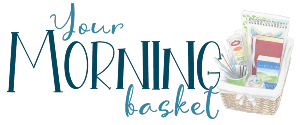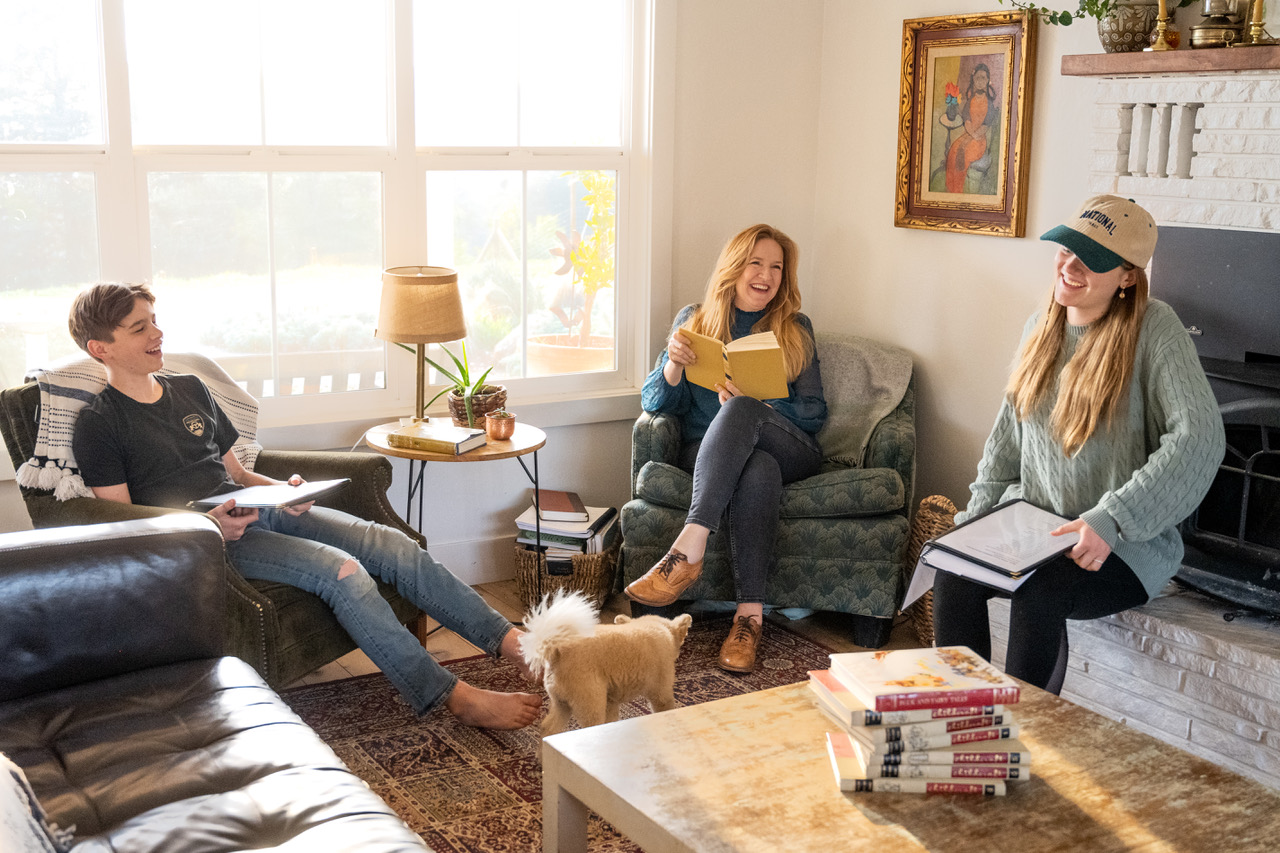 Pin
Pin 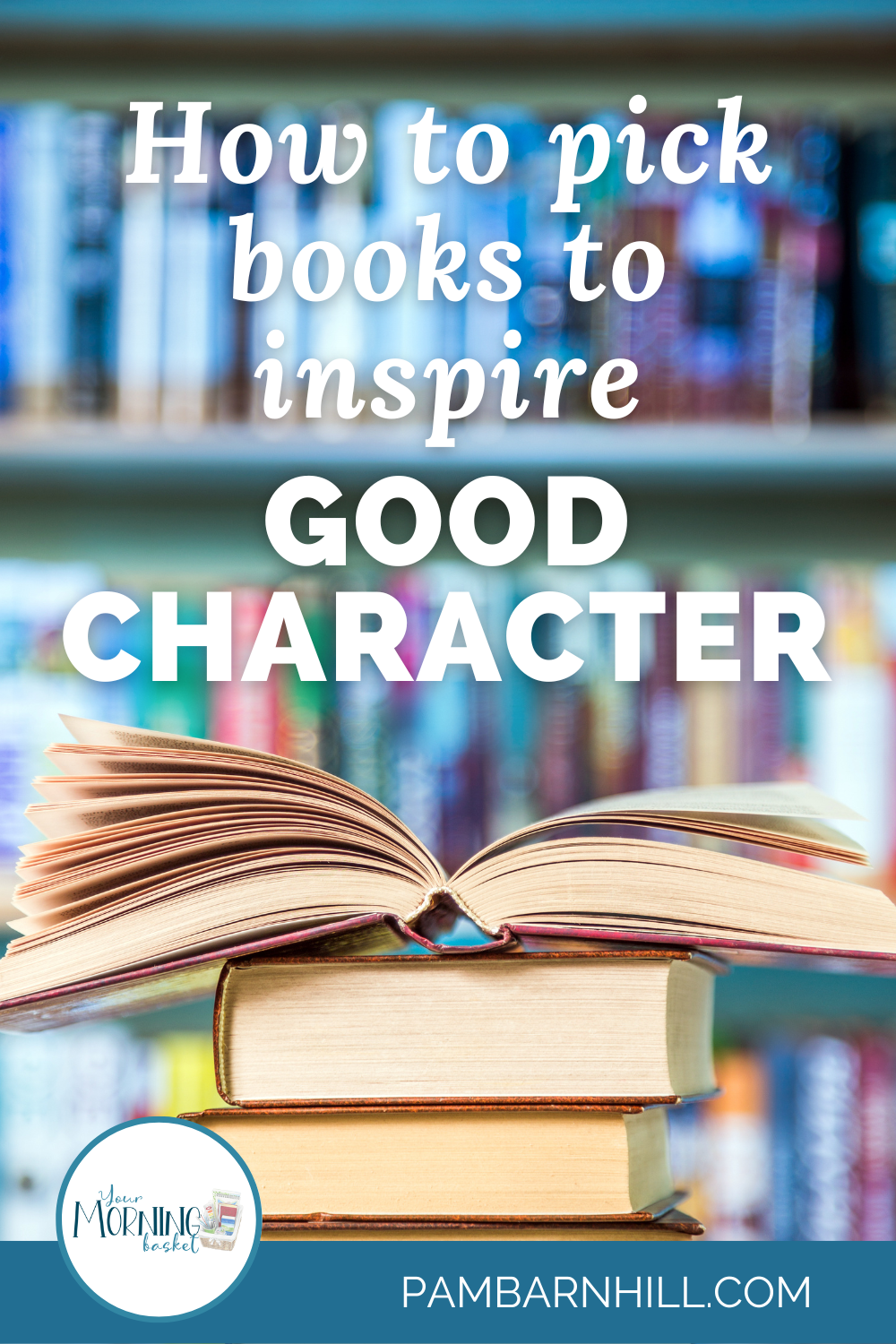
As moms we deal with so many struggles and fears. Are we doing enough? Will our kids turn out ok? These fears threaten to overwhelm us and we wonder what can we do about it. My guest Jen Pepito knows those same fears all too well and has found solace and help in an unlikely place — the books she reads aloud to her kids. Jen proposes that there are lessons for moms in the books we are reading to our family and she helps connect us to those lessons and how we can use them to overcome our fears in her new book, Mothering by the Book. She joins me today to talk about this unique approach and how we can use it to help us and our children.
Pam: This is Your Morning Basket where we help you bring truth, goodness, and beauty to your homeschool day. Hey everyone, and welcome to episode 125 of the Your Morning Basket podcast. I’m Pam Barn Hill, your host, and I am so
Okay, on today’s episode of the podcast, we have a fun guest who has written a fun new book. Jennifer Pepito from The Peaceful Press is here. That’s a lot of P’s. And she has written a new book called Mothering by the Book. And I just love the concept of this book. As moms, we have so many different fears, and Jen shows us how we can use books that we are reading with our kids anyway, to learn from and help calm those fears. So such a great concept. We talk about that in the podcast. And then we also talk about how we can go about using the same approach with our kids. How can we use the literature that we’re reading with our kids to help build their character and allay some of their fears and help them to be more empathetic as human beings?
So, such a great podcast topic. We had so much fun chatting about it. Now, before we get on with the podcast, I do wanna let you know that we have our own little collection of literature Morning Time plans on our website where we dive into wonderful works of literature like The Hobbit and Anne of Green Gables, The Green Ember, and so many more.
So you can come over and check those out. Those are in our shop pambarnhill.com. And just click on the shop tab to find those. And now on with podcast.
Jennifer Pepito is the author of Mothering by the Book and the founder of The Peaceful Press. She is on a mission to help moms overcome fear and love their lives. Her resources help create joyful memories among families, which lead to deeper conversations and lasting relationships. Her writing has been featured in several online and print journals, including Wild and Free, Commonplace Quarterly and Home Educating Family. Jennifer’s a Wild and Free podcast host and lives in the mountains with her beloved family where she enjoys reading aloud, working in her garden and watching the sunset. Jennifer, welcome to the podcast.
Oh, thanks for having me, Pam. It’s such a joy to get to chat with you again. I think it’s been a few years since we last got to connect on here, so thank you.
Yeah, more than a few years. So, so exciting. Tell everybody, remind everybody just a little bit about your family cuz we probably have a few new listeners and what, like how it’s changed since the last time you were on. Yeah, so I have seven children. Their ages are 28 to 13 and for sure, you know, I was looking at videos the other day of all these really sweet times where all seven children were home. Now I’ve got three sons who are out of the house.
Two of them are married. I have my first grandbaby. Oh Yay. But I have a daughter who’s back home after being away for school. So it’s a really sweet season in so many ways. But definitely the testosterone, the hormonal shift has happened in my house. There’s the girls outweigh the boy or we outnumber the boys now.
Oh, okay. That’s cool. So like I’m, I’ve got a senior and I keep telling her, you can’t leave because if you leave you’re gonna leave me here with all these boys and this is not gonna be any fun.
Yeah, yeah, I mean I, you know, I, my boys are lots of fun too, but it’s definitely a different experience to have more girls at home.
Yeah, that’s so cool. And it’s so funny to see like how it shifts as people grow up and, and move away, so,
Well how long have you guys been homeschooling?
I’ve been homeschooling for 25 years, Pam, I, you know, I started out going to like a Charlotte Mason companion book club back when I had a three year old. And so early on I was exposed thankfully to this beautiful way of homeschooling that has set the trajectory of our family life. But yeah, for 25 years. So my youngest two are eighth grade and 10th grade and I’m really, I’m really, you know, mourning, I’m really morning honestly, because I love projects and nature study together and I’m just kind of like milking that out as long as I can.
I mean, they do co-op classes, so I start outsourcing some of the education in, you know, later junior high high school. But I’m definitely like hanging on like, please don’t let this end.
Well, maybe by the time, maybe by the time they get about ready to go, that grandbaby will be ready to come over for nature study or something with grandma.
I’m kinda hoping honestly that at least somebody I’m like, where can I put an extra house on my property so at least some family with their grandkids can come.
I love it. I love it so much. Well, let’s talk a little bit about books. I know one of the things you love to do is reading aloud to your kids and books have always been so important to you personally.
I love when I got your book, it was so fascinating mothering by the book to look at the approach that you took in here. We all as moms have so many different fears and we can use books to help us with that. I, you know, I look at books as a companion myself, and you really kind of took that out to the Nth degree in here. Not only are books are companions, they’re really helping us overcome some of these fears that we have as moms. So talk to me a little bit about this approach. Where did you come up with this and how has this shaped your own motherhood?
You know, one of the first moments where I can really remember being impacted by a story was when we lived in Mexico, we had five children and we lived off grid and we had a thousand gallons of water a week that was delivered in a tank. And we had no electricity. So we had like some solar power, some windmill or a generator. So it was a very kind of a homestead lifestyle. And at the time I was reading The Long Winter by Laura Engels Wilder and it just, it gave me so much comfort because we were, it was winter time in Mexico, it was raining, it was kind of a rainy winter there and if it rained you couldn’t get the truck in and out to bring the water. And so there was this kind of sense of urgency, like, oh, we had to watch the weather, we had to make sure that it wasn’t raining so we could get water in or, or make sure we had water before it rained. So there was a lot of that same, like watching the weather to see if they could get the trains through so they get food to the village. And obviously we weren’t going hungry, but it, it gave me so much comfort to see how that family braved their circumstances. So that was one of the, you know, really bright memories for me of when a book just comforted me so much in a hard time.
But as moms, I feel like we do have so many fears and I was trying to read all these self-help books and trying to read all these books that would help me be a better mom or kind of do things right so that the fears would be allayed. But as I saw people just navigate imperfect situations and books and push through their fears, that’s what really started to change the perspective for me.
I love that so much because you know, I used to do that. I, I tell everybody, I was never a young mom, but when I was a mom of young kids that I would do that.
I read all the self-help books and I read all the books where I was looking for the answers and really they just caused me way more stress and anxiety than they helped. Right?
Right, especially because the advice, like you could read one book and it says do this, and the next book’s the exact opposite. So almost creates more confusion.
Yeah. And so I stopped, I just stopped reading those books and you know, thinking, well, I’m just never gonna be this perfect book mom. Right? The lady who does it by the book and who does it all perfectly. I’m just gonna make up my own way as I go. And I love how you’re tying into this idea of things happening in literature and we can have this empathy with the characters and we can see ourselves in the characters, which is such a powerful thing there that we could learn from that and we could use that, you know, that feeling the same.
So, how did you choose the books in here that speak to some of these fears? And you know, I really encourage people to go and check out the sample of this one, you know, on Amazon or your favorite bookstore website because I love, in the table of contents you’ve given us the different books that go with the fear. So for example, Overcoming the Fear of Future by Not Complaining. And that one is actually the Little House series, our Overcoming Fear by Running After Purpose, which is Freedom Train. So how did you match up the books with these different fears and how did you come up with the list of fears?
You know, I mean partly I did throughout my years with the Peaceful Press I’ve been asking and getting emails, you know, so many moms message with like, I’m afraid I’m not doing enough or you know, I’m, I’m really, I’m afraid of this new season, or I’m really confused about how to do this. And even, you know, fear can masquerade as confusion or as, or as stress or, you know, there’s so many different ways that fear can look. But I mean these were all, you know, I’ve been reading out loud to my children in Morning Time for 25 years. So these were all books I’d read out loud and as, as I’m reading to my kids, I’m always picking up on lessons in these books.
You know, I have actually a little sort of journal of my own where I write down quotes from books, you know, and there’s always a lesson to be found in these books if we’re paying attention. And, and then in some instances, you know, like the, I really wanted to talk about habits because during my own season of kind of depression and where fear was especially intense in Mexico, I read that quote by George McDonald that’s in the book. He talks about, you know, if you’re afraid, pick up a broom or do something. And so I really wanted to talk about habits and one of the best books that exemplified that for me was Cheaper by the Dozen. I don’t know if you’ve read that one out loud, but you know, just the way that family had so many systems and habits in place that help them keep going even when maybe they were afraid of their circumstances. And you know, I mean they go through a real big tragedy in their house and they still keep going with those systems because they’ve just developed such good habits. So, you know, in some cases the book, I already had the idea from reading the book and in some cases there was a principle that I’d been learning through the books and then I was like, Oh, this is the perfect book to exemplify that principle.
I love it. I love it. And it’s just, I don’t know, it’s just such a neat concept and the idea of, you know, you helping connect moms, like you can see this in here and I’m gonna connect you to that, this idea that there is something in here for you. It’s not just a children’s book. And we know that these are not just children’s books, but there’s something in here for mom too. So.
Totally. And you know, it’s like I just, for myself, I do feel like the fears stole so much of the joy, stole a lot of joy from my marriage, from my parenting, from every area of my life. And I love my moms. Like it’s, you know, there’s, right now I think there’s like 5,000 people in my Peaceful Press Facebook group. I love these women. Like they are so precious and I don’t want these moms to keep staying in their head and then look back like me and be like, I wish I would’ve enjoyed that season more. Like that was my, my boys, you know, my, when my boys were 10 and 12 and then I also had like six and or yeah, six and four year olds. I missed some of the real wonder of that season with those boys because I was so up in my head worried about the future or worried about an older child or whatever it was.
And I really want mom to just get hold of this idea that you’re loved, that tomorrow’s gonna be okay. You know, and, and so they can enjoy this short time of childhood. Like it’s, for me, parenting children is almost over. Like my youngest is 13, so I don’t have much time left and I don’t want other moms to look back and feel like they squandered that time worrying about stuff that’s really not important.
I love it. I love it so much. Okay, so the other thing I love about this approach is the books that you have chosen are almost all books that homeschool moms would be reading aloud to their kids. I mean, you know, maybe not Pride and Prejudice, but probably once you get a high schooler you’re having to read that with your child.
And so it almost feels like it’s cheating because Right, because you’re not telling me, oh, now you need to go out and read this big high, you know, high brow thing that you’ve got to make time for if you feel like I have this fear and I would like to see what Jennifer says about overcoming this fear. It’s just a book you can pick up and read to your kid and you’re not asking me to do extra work. So can I say I just love that.
Yeah. And and it’s fun too because a lot of the books actually in here are books that we’ve read through our Peaceful Press history resources. So we’ve read All of the Kind Family and saw how they built traditions and we’ve had our little Rosh Hashana celebrations and we’ve read The Endurance and watched how they, you know went through these hard times.
So it’s really fun, I think for the moms who, who we’ve been reading some of these books together to see, oh my gosh, I read this book and I saw this too and, and look how it’s being kind of spelled out for me what we learned as we were reading.
Yeah, yeah. So extra credit for you for not giving homework to moms.
They can do it with what they’re doing already.
Yeah, I mean I, I think like we only have so much time to recharge children and I think our attention span gets shorter and shorter as time goes on. And so I feel like why waste time on books that are difficult to read or, you know, I think there are beautiful books that have great lessons that we can choose. And I, that’s what I’ve included.
I love it. Okay, so I wanna shift the focus just a little bit and talk about using this exact same approach to call Moms Fears with our kids. Can we do this with the books that we choose to read in our Morning Time with our children and kind of have the same effect on our kids as we would have on ourselves?
I, I really think it has, you know, in my own family I’ve seen my kids do really gritty things like be a whitewater guide or rock climb, you know, the, it’s called different 14 pitches. So basically, you know, my daughter like repelled down, you know, Yosemite falls or climbed up. I, I don’t know what the, what the rocks are, but there are many stories high, you know what I mean? So I’ve seen my kids through this approach of listening to people or, or learning from people who’ve done brave things. I’ve seen them then be able to take their own stand or navigate something scary with new courage. And I don’t feel like they would’ve had that if they hadn’t been reading these heroic stories.
And that’s one of the things that I, I really want moms to understand is like a lot of the stories that are like modern books, a lot of modern books don’t have heroes anymore. You know, I don’t know if you’ve noticed that, but a lot of the modern books, they’re, the characters are so messy and life is messy. It’s true.
But I think that kids, especially young kids, do need some heroes and they don’t need to know the whole dark side of everything all the time. Yeah. Because I think what that can create is sort of nihilism, like it can create hopelessness and that doesn’t contribute to courage. But when we’ve been reading, you know, we’ve chosen books in our Morning Time that encourage bravery that exemplify people who stood up or, or made a choice that was hard. Like Harriet Tubman for instance. I mean, you know, we talked a lot about, as we were reading that book out loud, we talked a lot about how she could have quit. She didn’t have to keep going back to save people, she was free, but we, you know, look at what she did.
So I think the books themselves teach, but then always they lead to conversations that highlight these characteristics.
Yeah, I love that. And and that’s one of the best things about reading with your kids in a situation like Morning Time. It’s the birth of the conversations that come out of it. I think that’s where a lot of the teaching comes from.
Okay, so I don’t wanna throw you, but I wanna ask you this: How do you do this in a way that’s not moralizing or over-explaining to your kids?
Totally. Cuz I know Charlotte Mason really talks about like, not using overly moralistic or, or I think she’s a little bit talking about some of the Victorian books that were out there.
And I, I don’t think, you know, know for one thing, the books that I’m reading, Little Britches for instance, there are there, that’s messy too. Like he makes some mistakes, but it’s a lot, It’s really clear that he’s made a mistake that he’s disappointed his dad. And then he, he almost always, he always fixes the problem.
Like, so the story itself has some of that conflict, that good and evil and that messiness. But I don’t think I have to explain because my kids are getting it. But then the discussions that we have, it’s not like I’m saying, Look, kids, this is what you should do. But it’s more that I’m making an observation. Oh my gosh, look at how we just read Miracles on Maple Hill. Look how Mr. Chris was always doing good things for people and people didn’t even know it because he wasn’t bragging about it because he was just such a good person. Like, it wasn’t, it, it was like I was making the discovery with them. I didn’t plan a lesson ahead of time to teach them a character quality.
It was more that I was enjoying the book. I was making the observation with them, you know what I mean? I think that’s really key as homeschoolers to recognize that our own attitude towards learning and character growth, that’s more what is gonna be picked up on by our kids than some lesson that we prepare but don’t live out.
Oh, totally. I, yeah, I get that. And I think it’s, it’s such a good thing that, you know, you didn’t say, well we’re gonna learn about this today and then bring out the lesson and ask ’em the questions and like beat ’em over the head with it by simply making that observation. Then they can say, Oh yeah, I see that too.
And maybe they could even come up with some other times during the story where they saw something similar and and would point that out to you. So I love the modeling of that. So what are some lessons that you feel like your family has learned from reading literature together? You mentioned bravery.
Yes, obviously bravery. You know, I think one of the things that has really stuck out to us also in reading, cuz we’ve read the whole little britches series out loud a couple times and in there Ralph Moody gets, he gets in trouble financially and, but instead of filing, and it was actually not his fault, it was a partner who defaulted on his loans and Ralph Moody in the book, he like works really hard so that he can pay back those debts and you know, so that was a huge lesson to us just watching the way he was so responsible.
Another lesson we’ve learned from those books, so many from those was the way that Ralph always found mentors. Like he was good with people, he cared about relationships and it was often a relationship that helped him get out of a scrape. And so, you know, I just think that’s the thing about reading out loud to our children, I mean the character qualities, my friend Jenny Urich showed me this list called Rich Habits and it’s all these things that wealthy people do normally as a family. Things like, you know, saying thank you to people or finding mentors, things like that.
So many of these things are exemplified in these great books that we read. You know, being courteous or working through conflict and my kids, they’re getting that lesson through the book instead of me necessarily giving them a daily character lesson.
Yeah, yeah. And it goes back to, I’m sure that because you’ve gotten those lessons from those books, you’re modeling that for your kids as well. Like you’re the one who’s being courteous and saying thank you and and all of that stuff.
And I just think back to my childhood and so much of what I learned about the world around me and what I believe came out of the novels that I read because you know, when you’re a kid you don’t go a whole lot of places typically. Most kids don’t. We have a few fortunate ones who are able to travel the world, but most people get that empathy and that character from the books that they read as children.
Yeah, it’s so true. It really shapes us, which is why I think it’s so important to curate our children’s libraries to those stories that are going to create that more hopeful worldview.
Well, let’s talk about that for just a second. So you’ve brought up Little Britches. So I will say we have only done the first book of the series and it has been quite a while since we did it, and then Little House. So what are some other books or series that just really exemplified this for your family?
You know, obviously the Chronicles of Narnia, we read those out loud a couple years ago and there’s, there’s just so many beautiful lessons about tenacity and you know, that kind of, and you know, one, I one thing I love about those books is there’s a pretty distinct consequence when someone has bad character.
You know, like Edmond, his poor character got him, you know, trapped by the Queen, you know what I mean? So reading these books where there is such a distinct illustration, but the Chronicles of Narnia very impactful for us. The Endurance. We’ve read some really interesting missionary stories like Bruchko and It’s a Jungle Out There. Some of the picture books have been really meaningful.
Yeah.
Also, there’s one called a Home, I think it’s called A Home of Our Own that’s really special. Yeah. There’s just so many that we’ve collected on our list to really bring so much joy and, and really a family identity. I think one of the beautiful things about reading out loud is the way it kind of shapes a vocabulary.
You know, we, we were listening to Watership Down on a big trip and so there’s, you know, added vocabulary, the tale of Two Cities we’ve been listening to as a audiobook. And there’s more experiences and more kind of insight that you get from that. We Winnie the Pooh is another one that we’ve read out loud. Yeah.
And then it becomes part of our, you know, we go and play Pooh Sticks anytime we see a creek, you know what I mean? So these books just shape our family in such a beautiful way.
I love it. And I, I think that’s the only thing better than enjoying a book by yourself is actually enjoying it with somebody else. And because then you do have that opportunity for that shared culture built around that book, the little things you say and the, you know, at any time you can pull this up and have a conversation and somebody else knows exactly what you’re talking about.
Yeah, For sure. And it’s still a big part of like, I have a 15 year old daughter who I’m homeschooling and then I have a 28 year old who’s home and living in a separate apartment.
And so we were reading books together and talking about the character lessons and talking about the revelations that we, you know, we just read a young adult book, I think it was called Wild Bird. I’ll try to get you the title cuz it was interesting about a girl who goes to rehab and there’s all these lessons about the way they taught her personal responsibility through that.
And you know, it was a young adult novel, but I read it and got some lessons for my own life and then it was this big discussion between myself and my adult daughters. And I think that’s one, you know, my kids when they’ve, you know, and the college classes they’ve had, they always kind of blew their professors away with their insight.
But I think it’s just that we had so many discussions and discussions really teach critical thinking because you do have to sort of defend your idea. Like, I think that this book was encouraging because of this. You have to defend an idea and then if one of my other children read it and they have a, you know, different perspective on it, we have to talk it out.
So I think there are so many not, it’s not just character building to read out loud to your children, it’s also the critical thinking skills, the ability to compose your thoughts and, and repeat them back. All of these contribute to success in life relationally, academically, emotionally, in so many ways.
Yeah. And that you just can’t get that from, you know, a series of comprehension questions or you know, like a workbook or something that goes along with the book that really comes out of those conversations that you have.
Absolutely. You cannot get the beauty of language that moves your heart from a workbook.
Yeah, yeah. I love it. I love it. So are there any things that moms can look for in books as they’re, you know, if they think they’re observing their child and they’re like, you know, I’m really seeing this particular issue and I would like to subtly address this through a book. Maybe it’s some fear the child has or just some point of character that they feel like needs to be worked on, maybe in even more than one child in the family. How can they go about finding the story that’s gonna do that?
Yeah, I actually have a list on the page motheringbythebook.com. There is a list that kind of, it’s from the book. In the back of the book there’s like a list for every one of the fears. And then it has like books for Mom and books for children. You know, like if you’re wanting to develop better family traditions, there’s a few books in there that talk about families who had great traditions or if you’re wanting to help your child develop more courage, there’s a list of books there, you know, or living for a greater purpose. So the, you know, I think that I’m not a huge fan of pre-reading. Like I know Charlotte Mason diehards, they pre-read, you know, so sometimes if I want to evaluate a book, I will pre-read it. Sometimes I will look up a parent review on it or look up another review. But I do think it’s important to recognize like some of what we’re doing is we’re giving our children the books that will help shape more beautiful character. But some of it is also being aware if the books they’re reading don’t. Iif the books they’re reading are disparaging of the parents or if they do constantly have kind of a darker worldview, I think it’s important for us as parents to get, you know, get the insight on that so we know if something is contributing to those fears. Cuz it could be a matter of giving them something more positive. Like, you know, a book like Bruchko where a guy goes into jungle and survives living there and or you know, a book like The Endurance where they get shipwrecked and have to make their way back to civilization. You know, book like that is so encouraging.
My son, my youngest son just read The Devil at My Heels, which was the biography of Louis Zamperini. And I mean, there are so many beautiful character lessons in that book, the way that he, you know, survived the unsurvivable but then came back with so, you know, such terrible PTSD and alcoholism and then had this beautiful encounter that changed everything for him. And so I think that, you know, partly it is giving them those hero stories and protecting them from those anti-hero stories.
Yeah. And and I think it’s a good thing to point out, you know, you’re talking about a teenager who’s reading that book right now, and it’s not that the books don’t have hardship or the books don’t have, you know, show a rougher side with the alcoholism and things like that. But it’s that in the end the story is redemptive. The person overcomes.
Yeah. Yeah. Well, and, and it’s, you know, an interesting example, like I just read Where the Crawdad Sings, it’s a, it’s, it’s an adult book and there’s a lot of beautiful nature in there. It’s so stunning. But at the end of the book, you’ve, I’m not gonna no spoilers,
I’m gonna zip it, but it’s, it’s, it’s, I would not say it’s a hopeful book in a way, you know what I mean? There’s a lot of beauty in it and it’s fine for moms to read, but it’s not, it wouldn’t, that’s what I’m talking about is just these books where nobody’s really good. Do you know what I mean?
There’s, there’s not kind of a consequence for wrongdoing. Everything’s sort of muddy. Yeah. And, and as moms, as adults, we can kind of handle that. But I think it doesn’t have to be like that for our kids where there are no sort of visions of good and it’s all just sort of muddy.
Yeah. Yeah.
I read that book too this summer and it was like very thought provoking at the end. There were lots of different things to turn over, but it’s definitely not a book I would wanna hand to my kids because you’re right, there is a lack of redemption at the end of that one. Right.
In a way, I mean it was like there’s, it was, I thought it was gonna be a happy ending, but anyhow. Yeah. Yeah, we’ll just leave that one there. Talk about that one off, off audio.
Well, Jennifer, tell everybody where they can come. Oh, the other thing I wanted to mention before we do that Redeemed Reader, I don’t know if you’re familiar with that resource, but I do wanna throw that out there at the while we were talking about finding good modern books for your kids. Because so often the book list and the review sites have those more classic books. And then definitely go check out motheringbythebook.com where you get Jennifer’s list. But if you’re looking, you were talking about reading reviews of the more modern books to make sure that what we’re putting in front of our kids are worthy things.
And Redeemed Reader is a great resource for that because that’s basically what they do. They review the more modern books from a Christian perspective and, and let everybody know like, is this a book that you would wanna give to your kids? Is this there a, you know, is it a book where there’s some redemption and some good character and things?
Yeah. That’s so helpful. I know both of us on our website have lots of like book resources and suggestions and then my daughter’s, my teen daughter’s also gone to Read Aloud Revival to find because she has, you know, ye lists and things like that. But it is, it does take some research, but it’s so worth it to have these beautiful books that shape our families in a hopeful way.
Yeah. Love it so much. Okay, where can everybody find the book and where can they find out more information about you?
Yeah, so the book is everywhere the books are sold, but if you go to my page motheringbythebook.com, that is where you can get that free book list and a few other goodies that I’ve put together for families when they purchase.
And I’m also on Instagram at Jennifer Pepito and The Peaceful Press.
I love it. Love it so much. Well, I just love the concept of this. I’m so glad you wrote it. I think it’s gonna be something that blesses moms so much and just like even to the next generation, like it’s something that I can say, Oh, what a great thing to do and use with my children as well. So kind of does double duty there for the mom and for the kids. So thank you Jennifer.
Oh it was such a joy and it’s been so fun to chat with you today, Pam. Thank you for having me.
And there you have it. Now if you would like links to all the resources that Jen and I chatted about today, including all those awesome book suggestions Jennifer had, you can find them on the show notes for this episode of the podcast. That’s at pambarnhill.com/YMB125 and will also include a link to Jen’s book plus a link to our own literature Morning Time plans. I’ll be back again in a couple of weeks with another great Morning Time interview. Until then, keep seeking truth, goodness, and beauty in your homeschool day.
Links and Resources from Today’s Show
- Month of Morning Time
- Seasonal Morning Time Plans
- Geography Morning Time Plans
- Literature Inspired Morning Time Plans
- History Morning Time Plans
- Preschool Morning Time Plans
- Catholic Morning Time Plans
- The Peaceful Press
- WILD + FREE Podcast
- Redeemed Reader
- Mothering by the Book: The Power of Reading Aloud to Overcome Fear and Recapture Joy
- The Long Winter
- Freedom Train: The Story of Harriet Tubman
- Cheaper by the Dozen
- Pride and Prejudice
- All-of-a-Kind Family
- Endurance
- Little Britches
- Miracles on Maple Hill
- The Complete Chronicles of Narnia
- Bruchko
- It’s a Jungle Out There!
- A Home of Our Own
- Watership Down
- A Tale of Two Cities
- Winnie the Pooh
- Wild Bird
- Devil at My Heels
- Where the Crawdads Sing





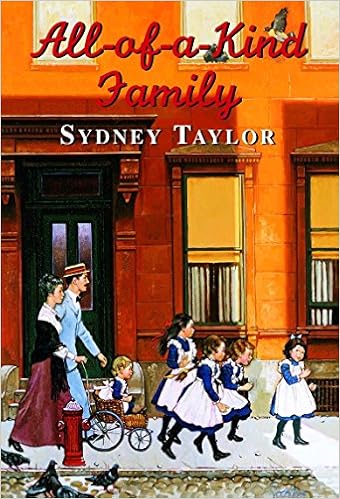

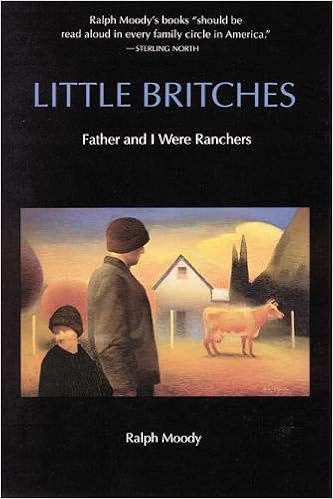





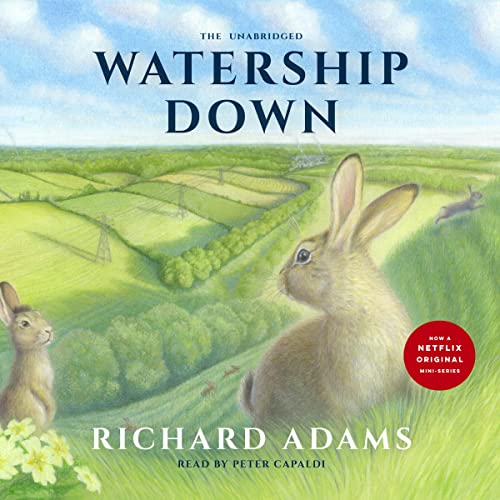



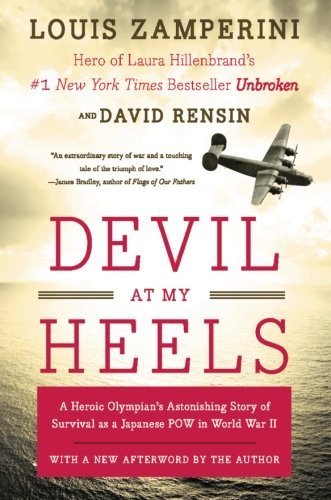

Key Ideas about Mothering by the Book
- There is always a lesson to be found in the books we read if we keep our eyes open and are paying attention.
- Reading good books gives us the opportunity to present heroes to our children. We want the books to provide examples of courage, redemption, and hope. But, be careful not to over explain or moralize. Allow the books to speak into your heart at the same time you allow it to speak to your children.
- Reading these books together allows us the opportunity to discuss the ideas we come across as a family. We can learn from the book itself, but also from each other as each person shares how the book is impacting them as well. As a bonus, discussions help your children learn critical thinking skills.
Find What you Want to Hear
- 2:24 meet Jennifer Pepito
- 5:40 how books have shaped Jen’s motherhood
- 14:59 using this approach with our kids and not moralizing
- 19:37 lessons the Pepito’s have learned from literature
- 25:48 how moms can pick books to inspire good character
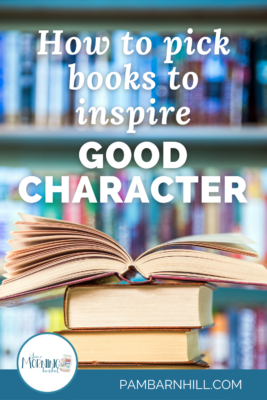 Pin
PinLeave a Rating or Review
Doing so helps me get the word out about the podcast. iTunes bases their search results on positive ratings, so it really is a blessing — and it’s easy!
- Click on this link to go to the podcast main page.
- Click on Listen on Apple Podcasts under the podcast name.
- Once your iTunes has launched and you are on the podcast page, click on Ratings and Review under the podcast name. There you can leave either or both!
